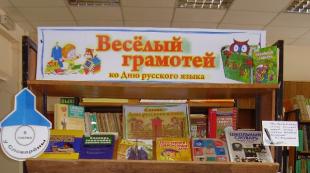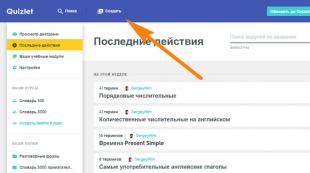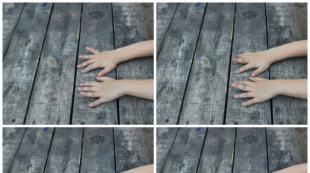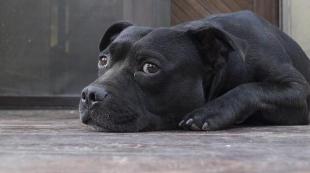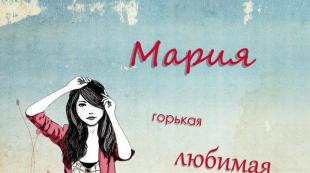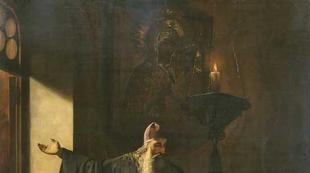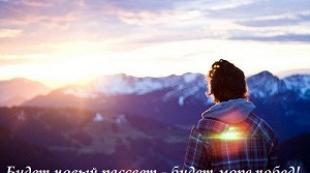Crossword in Russian. Crossword in Russian Crossword in Russian 10 11
MATERIALS TO HELP THE LIBRARY AND TEACHER
Poster size - 960 x72O
File size - 99.1 kb.
The collage was designed by Galushko N.V.
Click on the thumbnail to enlarge the image and download the poster.
CROSSWORD "RUSSIAN LANGUAGE"
FEBRUARY 21 - INTERNATIONAL NATIVE LANGUAGE DAY
JUNE 6 - RUSSIAN LANGUAGE DAY
LIST OF METHODOLOGICAL MATERIALS
Akhmetova N. V. Lesson-game "Edition": An hour of entertaining grammar in the 2nd grade / N. V. Akhmetova // Leisure at school. - 2006. - No. 1. - S.22-24.
Bonashevskaya T. I. Tales-hints: [Funny poems according to the rules of Russian grammar] / T. I. Bonashevskaya, O. V. Shugan // Leisure at school. - 2006. - No. 1. - P.8-17.
Britvina L.V. Vsevedy: [script of an intellectual game in the Russian language for students in grades 5-7] / L. V. Britvina // Read, study, play. - 2008. - No. 6. - S. 75-78.
Evdokimova K.V. The dictionary reveals secrets: a bibliographic game for the lesson of the Russian language for students in grades 5-8 / K. V. Evdokimova // Read, study, play. - 2009. - No. 12. - P.41-45.
Evseeva V. V. Review of knowledge in the Russian language: [Scenario of a competitive game theatrical program] / V. V. Evseeva // Leisure at school. - 2006. - No. 1. - P.4-7.
Elkina T. N. Dear Tatyana: [an excerpt from "Eugene Onegin" in a new way about modern youth and the purity of the Russian language] / T. N. Elkina // How to entertain guests. - 2005. - No. 6. - S. 11-12.
Kolomytseva L.V. Tales of A.S. Pushkin at the Russian language lesson on the topic: "Conjugation of verbs": [Lesson of an entertaining Russian language] / L. V. Kolomytseva // Leisure at school. - 2006. - No. 1. - P.18-19.
Kryukova N. S. ABC - a step to wisdom: [Lesson-competition of the Russian language at the end of the study of the primer] / N. S. Kryukova // Leisure at school. - 2006. - No. 1. - P.7-8.
Kryukova N. S. Extracurricular activity "Language - why do we need it": [Conversation about the history of Russian writing, about the creators of the alphabet, Cyrillic and Glagolitic] / N. S. Kryukova // Leisure at school. - 2006. - No. 1. - P.3-4.
Kryukova N. S. Journey to the country of Glagolia: [An entertaining Russian lesson] / N. S. Kryukova // Leisure at school. - 2006. - No. 1. - P.17-18.
Lopatina O. N. Virus in the Kingdom of Grammar: A comic play for the school theater of grades 5-7 / O. N. Lopatina // Leisure at school. - 2006. - No. 1. - S.21-22.
Lopatina O. N. Leafing through Russian pages: Scenario of the competitive program for lovers of the Russian language / O. N. Lopatina // Leisure at school. - 2006. - No. 1. - S.19-21.
Monina V. Learn to speak competently: [methodological development of the game for the education of speech culture] / V. Monina // Library. - 2006. - No. 2. - S. 49-51.
Selishcheva L. Young treasure hunters: [about the organization of an exhibition in the children's library - travel "On the road, for treasures, to the wonderful Land of words"] / L. Selishcheva // Library. - 2005. - No. 9. - S. 34-36.
Titov S.V."Rhymer" from Dunno and "word-weaver" from Znayka: Competitive program for experts in the Russian language / S. V. Titov // Pedagogical Council. - 2006. - No. 2. - P.18-20.
Filatova V.P. Malvina's lessons: interesting linguistic games for children aged 9-12 / V. P. Filatova // Books, notes and toys for Katyushka and Andryushka. - 2005. - No. 12. - S. 60-65.
Design: Galushko N.V.
Take care of the purity of the language as a shrine! Never use foreign words. The Russian language is so rich and flexible that we have nothing to take from those who are poorer than us!
I.S. Turgenev
INTERESTING FACTS ABOUT THE RUSSIAN LANGUAGE
POSTER ON A BOOKSHELF
ABOUT VARIOUS DICTIONARIES. DICTIONARY GAMES
Click on the crossword grid to read the correct answers
The following materials were used to create this page:
Arsyriy A. T. To the Land of Knowledge - with Grandfather the All-Knowing. Entertaining materials on the Russian language. Travel first. - M.: Bustard, 2004. - 304 p.: ill.
Fun lessons.- 2006 . - No. 4. - S. 10-11.
BOOK EXHIBITIONS OF DIFFERENT YEARS
True love for one's country is unthinkable without love for one's language.
We have been given possession of the richest, most accurate, powerful and truly magical Russian language.
K.G. Paustovsky
The tale of letters, told by Dunno
There were letters. They lived together, did not quarrel. And there were only 36 of them. Or 34? I do not remember. Ten of them are vowels. Very interesting letters! Half are magical. Why were they named like that? Well, probably because with the help of a magic wand they can turn a lion into a mouse, and a flea into a huge plane. And consonants are generally eccentrics! Some speak loudly, loudly. For example, letters p, t, x. And others can only whisper, rustle, hiss. These are dull sounds. But I forgot what letters stand for deaf sounds. Tell! Letter h very friendly with letters I And Yu. She really can't part with them! And here and And w don't get along with the letter s, but are only friends with And and she makes them soft-soft. And there are two strange letters. They are always silent. Maybe dumb? You don't know them? What kind of country is this anyway? What is it called?
PARFENOVA, A.E. The Tale of Letters, told by Dunno / A.E. Parfenova // Primary school. - 2005. - No. 10. - S. 76.
6. _______ ?______ DICTIONARY
He will help you to know
How to say the right word
So that you can easily find
Where is the stressed syllable.
|
|
|
|

Horizontally:
1. Part of speech answering the questions who? What?
6. What is the part of speech: ah, oh, alas?
7. An invariable part of speech that explains verbs and adjectives.
8. Vocabulary composition of the language.
11. What is the part of speech: no, no, here?
12. What is the part of speech: I, we, you, he, she?
13. Part of speech denoting the action of objects.
14. Part of speech denoting the signs of an object?
Vertically:
1. What is the part of speech: but, and, ah?
2. Spelling system of words.
3. Punctuation mark in the form of a dash.
4. Punctuation at the end of a sentence.
5. What is the part of speech: from, to, for, about?
9. Punctuation mark inside a sentence.
10. The art of reading and writing correctly.
11. Part of speech answering questions how much? which one counts?

On the bookshelf, look, there are closely packed dictionaries.
In each word - do not count, at least three days to flip through it.
They are thicker than other books, no matter what you look at,
Everyone is needed, everyone is important. We will tell you everything now.
At the same time we will play, we will solve their riddles.
EXERCISE:
Read verses about dictionaries. Complete the tasks. Decide what vocabulary the poem is talking about. Use the hint - the image of book covers of dictionaries
1. ______ ? _____ DICTIONARY
You look into it, dictionary
All the words of the story will tell
And what was called in the old days,
You might even be reminded.
LANITES _ _ _ _
OKO _ _ _ _
FINGER _ _ _ _ _
USTA _ _ _
PERSON _ _ _
2. DICTIONARY ____? ____
He is always ready to show
How to write without error
Words from different languages
And suggest their meaning.
And you are the meaning of these words
Ready to name without a dictionary?
And the same again
Say in Russian words?
AZART _ _ _ _ _
HERBARIUM _ _ _ _ _ _ _ _ _
DEFECT _ _ _ _ _
POET _ _ _ _ _ _ _ _ _ _ _
3.____? ____ DICTIONARY
Open it soon, here
Winged words live
Along with proverbs.
And you and I need
Find the ends of proverbs.
The dictionary will help us:
Collect all proverbs
And what do you forget, look!
CALLED A LOAD ________________
WHERE THE THREAD ____________________________
SHILO _____________________________
HEARD THE RINGING _____________________
UNDER LAYING STONE
_____________
4. DICTIONARY ______ ? _______
Our Russian language is both great and rich
Synonyms will always confirm this,
And yet these words are different in appearance
They always tell us the same thing
Now prove it yourself
Find synonyms for the words.
Choose antonyms for these words -
By the word, or maybe two or three.
WHITE
_______________
DAY _______________
JOY _______________
1
2
3
4
5
6
Get the accents right
LIFE AFTER SOUL GOOD:
PURE AND THE BODY, AND SOUL!
PUBLISHED MY TWO RITES
IN TODAY'S NEWSPAPER.
I FOLLOW FROM AWAY THEN,
HOW CHILDREN READ THEM.
I PEDAL EVERYTHING FASTER I TURN:
THIS I TURN I WANT TO OVERCOME!
Check your answers
:
Riddle No. 1. - Dictionary No. 6 Riddle No. 4. - Dictionary No. 4
Riddle No. 2. - Dictionary No. 2 Riddle No. 5. - Dictionary No. 1
Riddle No. 3. - Dictionary No. 5 Riddle No. 6. - Dictionary No. 3
It turns out that words in Russian can begin with any sound: a vowel or a consonant, with the exception of the sound [ы].
According to phonetic and spelling features, one can easily identify foreign words that came into Russian from other languages. As a rule, borrowed words begin with the letter and sound [a]. There are very few Russian words starting with [a]: clumsy, string bag, Arkharovets, nonsense; yeah, yeah, ah, ay ah, maybe. Some of the Russian words are colloquial: azh, ash or obsolete: so hot, ala. Foreign words clearly "prefer" the initial letter e. Interjections e, ea, eh, and also what a, that way, this- that's almost all Russian words with the initial e. Words that start with a letter f, in origin, with very few exceptions ( snort, owl), are non-Russian. But if the word starts with a letter sch, know this is a common Slavic word: sorrel, spare, pike, and etc.
One of the characteristic features of Russian folk speech is the frequent duplication of synonyms: to teach the mind, safe and sound, unexpectedly, out of the blue, ways, roads, at random, etc. This technique is widely used in Russian folk tales, songs, epics and in the works of many of our writers. The fairy tales of A.S. Pushkin.
MYSTERIES OF THE RUSSIAN LANGUAGE. PLAY WITH WORDS?
Metagram - this is a riddle in which you need to guess the word, replacing one letter with another and one sound with another.
WITH To
I'm on the wall at school
Mountains, rivers are on me.
WITH P
- I won't hide from you -
I am also in the classroom.
Though I am small, but look:
I reflect the whole world in myself.
But To
on c change -
I'm walking through the swamp.
WITH b
I am painful
WITH m
I devour clothes
WITH R
I need an actor
WITH With
important to the chef.
You read about me in fairy tales:
They buried me in pods,
But if [e] soften at the end
The cart can be loaded by me
A logograph is a riddle in which the intended word can have different meanings as a result of adding, skipping, rearranging sounds, letters.
Ready to give you water to drink
But uh
add me at the beginning
And I will gather before me
I am the audience in the apartment, the hall.
The old man carries me with difficulty,
But if Yu
add, instantly
He will come to the rescue,
Who easily carries me.
I hit the log, ringing,
I supply firewood for the winter,
When will they read me from the end,
I express dissatisfaction.
Its like a memory of old wounds
On the body is a veteran.
On the contrary, read it -
And the music is on the way.
Charade- this is a riddle consisting in guessing a word, parts of which (in this case, syllables) can be independent words.
Two syllables ahead -
For lighting
And the third is a personal pronoun.
All together - the almighty king,
who ruled the ancient country of old.
Early October
Look for my first syllable
At the beginning of November, look for the second one,
And you will enter a residential house -
There you will find the whole.
My first syllable -
Number with zeros
All people have the last two,
And together - guess for yourself:
She is the head of all cities.
Dwelling - the first syllable,
Then comes the suggestion
But overall, I'm huge.
And I'm called...
A pun is a joke based on the same sound but different meanings of words.
Joking questions:
Which city is flying?
What city is baked in rolls?
What state can be worn on the head?
What musical note can you not cook dinner without?
A TALE ABOUT LETTERS TOLD BY A NEVER
CROSSWORD "SYNONYMS"
SYNONYMS ARE WORDS OF THE SAME PART OF SPEECH, DIFFERENT IN SOUND, BUT CLOSE IN MEANING..
ON THE MYSTERY GIVE A SOLUTION
ANTONYMS ARE WORDS OF ONE PART OF SPEECH WITH OPPOSITE LEXICAL MEANING
I am the antonym for the word "heat",
I'm in the river in the thick shade
And in a bottle of lemonade
And my name is...
I am the antonym of the word "summer"
Dressed in a snow coat
Although I love the frost itself,
Because I...
I'm the antonym for the word "laughter"
Not from joy, comfort, -
I am involuntarily from misfortune and from pain,
From resentment, failure, you guessed it? This...
I am the antonym of noise, knock,
Without me, you will suffer at night,
I'm for rest, for sleep -
I'm called...
Horizontally:
1. Casket
3. Lakomka
4. Amulet
6. Food
9. Pothole
10. Power
11. Delusion
12. Balagur
13. Rotozeum.
Vertically:
1. Prompt (often used by students)
2. Lies
5. Charm
7. Mischief
8. Miser
10. Junk
12. Code
CLICK ON THE CROSSWORD GRID TO SEE THE CORRECT ANSWERS

WHAT IT MEANS: PHRASEOLOGICAL RIDDLES IN PICTURES
PHRASEOLOGICAL UNITS - READY COMBINATIONS, STABLE BRIGHT FIGURATIVE EXPRESSIONS, CONSISTING OF PHRASEOLOGICAL UNITS, THE MEANING OF EACH OF WHICH IS NOT ADDED FROM THE MEANINGS OF THE WORDS INCLUDED IN IT.
The Russian language crossword for grade 5 consists of questions on the topics of the school curriculum, course repetition elementary school, suitable for repetition at the beginning of the school year and consolidation at the end of the second quarter.
Covers sections spelling, morphology, constant morphological features of parts of speech, morphemics and word formation.
For correct execution, it is necessary to know the designations of terms, the name of the sections of the Russian language, the composition of the word.
Not all questions in a crossword puzzle are the same. Most of them need to be explained, some need translation.
Download:
Preview:
Crossword in Russian for grade 5.
Horizontally:
2. Constant morphological feature of the pronoun. 4. Part of speech denoting action. 7. Changing sounds, their mutual replacement within one morpheme. 10. The part of the word that serves to form new words is in front of the root. 11. General designation of independent parts of speech. 12. A significant part of the word, separated from its composition, performs the function of word and form formation. 13. An official part of speech that connects not only homogeneous members of a sentence, but also connects parts of a complex sentence. 14. Oral or written retelling of the text. 15. Isolation of one of the syllables in the root. 16. Words of the same part of speech, different in spelling and opposite in meaning. 17. Consonants in combination with consonants form .... 19. The science of language, studying the correct spelling of words. 20. Sentences related to each other in meaning, having a logical sequence and united by one topic, form .... 21. Common part of related words.
Vertically:
1. A section of the science of language that studies the word as a part of speech. 3. Phrase or sentence requiring a response. 5. The type of speech that depicts the world. 6. Way of communication, transmission of thoughts and feelings. 8. Evaluation, analysis, analysis and criticism of the read literary work. 9. Common non-permanent morphological feature for independent parts of speech. 10. The word comes from the Greek. Para "near, near" + onima "name". 13. The part of the word that serves to form new words is after the root. 17. Words of the same part of speech, different in spelling, but the same in meaning. 18. Words that have the same meaning and have the same root. 22. Formative part of the word. 23. A book in which words with explanations are combined according to a certain principle.
Answers
Interesting crosswords on the subject of the Russian language, or rather, these crosswords about the parts of speech that you studied on the subject of the Russian language. This is a great way to make good use of your time.
Crossword "Russian language"
You are already in the 7th grade, and have been studying the Russian language for more than one year, the crossword puzzle will help you remember many of the definitions that you have learned over the years.
1. The system of punctuation marks in writing.
2. Words that are different in pronunciation and spelling, but have a similar lexical meaning.
3. Changing nouns by cases and numbers.
4. Section of linguistics that studies the sounds of speech and the sound structure of the language.
5. A section of the science of language that studies the structure of words.
6. Combines the meanings of verbs and participles: they denote action and
called a sign of action.
7. This is a service part of speech that serves to communicate.
8. A section of linguistics that studies the correct spelling of a word when writing.
9. The totality of words of a particular language, part of the language.
10. The science of the rules of inflection and word formation.
11. Words that have directly opposite lexical meanings.
12. The main part of the word.
13. Learn by heart, read carefully, putting high, saying softly - name the underlined words, in one word.
14. Spring, Reed, Lie - tell me what part of the word is missing in these words?
View answer
Answers:
1. Punctuation, 2. Synonym, 3. Declension, 4. Phonetics, 5. Word formation, 6. Germonal, 7. Preposition, 8. Spelling, 9. Vocabulary, 10. Morphology, 11. Antonym, 12. Root, 13. Adverb, 14. Suffix.
Crossword "Parts of speech"
Such a crossword puzzle is suitable for everyone who has completed the 7th grade course. The crossword will help you remember all the parts of speech in Russian.

1. Service part of speech, denoting the relationship between the object and the subject.
2. A minor member of the sentence, indicating the time, place, mode of action, etc.
3. Lexico-grammatical class of immutable words.
4. A special form of the verb, which indicates the sign of the subject by action and answers the questions of the adjective.
5. The service part of speech, does not decline or conjugate, and is not a member of the sentence.
6. An independent part of speech denoting an object, person or any phenomenon of reality.
7. An independent part of speech that indicates objects, signs, quantity, but does not name them.
8. Unchangeable, independent part of speech, denoting a sign of an object, a sign of an action and a sign of a sign.
9. An independent part of speech, which indicates the number and order of objects.
10. Part of speech, which denotes the action of the subject.
11. A special form of the verb denoting an additional action in the main action.
12. The service part of speech, which introduces various shades of meaning, emotional shades.
a crossword puzzle in the Russian language, which will help the children remember the terms on the subject.
Horizontally: 1. Punctuation mark. 4. Service part of speech, not used independently, always refers to some noun 6. A group of words that expresses a complete thought. 7. The central unit of the language, which serves to name and report on objects, features, processes and relationships. 8. Phonetic form of writing. It consists in Russian of 33 characters - letters. 10. One of the punctuation marks. It was introduced into Russian writing by the writer and historian N. M. Karamzin. Initially, the sign was called "line". 11. The main part of the word.
Vertically:
Answers to the crossword
View document content
"crossword in Russian"
Crossword (in Russian)

Horizontally: 1. Punctuation mark. 4. Service part of speech, not used independently, always refers to some noun 6. A group of words that expresses a complete thought. 7. The central unit of the language, which serves to name and report on objects, features, processes and relationships. 8. Phonetic form of writing. It consists in Russian of 33 characters - letters. 10. One of the punctuation marks. It was introduced into Russian writing by the writer and historian N. M. Karamzin. Initially, the sign was called "line". 11. The main part of the word.
Vertically: 2. A way of changing parts of speech, declension. There are six of them in Russian. 3. Minor member of the proposal. 4. The main member of the proposal. 5. Part of a word that forms its material, lexical meaning and consists of a root, as well as a suffix and a prefix. 9. A punctuation mark indicating the complete completeness of a declarative sentence.
Answers to the crossword

Crosswords with questions and answers on the Russian language and culture of speech for grades 3-4
Crossword 1
Subject: Unchecked unstressed vowels. Dictionary words. Horizontally.
1. When black is sour and perky, as I blush, I will calm down. (Cancer.)
2. Turn the circle - a distant friend will speak. (Telephone.)
3. Two brothers live across the path, but never see each other. (Eyes.)
4. With one hand he meets everyone, with the other he escorts. (Door.)
5. Ten boys live in a green closet. (Peas.)
6. He waved his sleeve - he bent the tree. (Wind.)
Vertically.
7. Himself thin, head with a pood. (Hammer.)
8. I go into the water red, I go out - black. (Iron.)
9. With her friends and sisters, she comes to us, stories, she brings new ones in the morning. (Newspaper.)
10. She is motley, eats green, gives white. (Cow.)
11. A little boy in a gray Armenian coat, snooping around the yards, collecting crumbs. (Sparrow.)
Crossword 2
Subject: voiced and voiceless consonants.
Horizontally.
1. In a fur coat - in summer, in winter - undressed. (Forest.)
2. A thick one will beat a thin one, a thin one will beat something. (Hammer.)
3. A peasant is lying in a golden caftan, girded with a belt, he cannot get up, people lift him up. (Sheaf.)
4. Who walks angry, hungry in the cold winter? (Wolf.)
5. Peas scattered into twelve roads. (deg.)
6. What do you not see on yourself? (Height.)
.jpg)
Vertically.
7. From the sky - a star, on the palm - water. (Snow.)
8. He is golden and mustachioed, there are a hundred guys in a hundred pockets. (Ear.)
9. Seven hundred gates, but one way out. (Seine.)
10. Without arms, without legs, but climbs into the hut. (Cold.)
11. Blind and dumb, dug up the whole earth, frost came - went into the ground. (Mole.)
Crossword "Anagrams"
Exercise: from the words given horizontally and in the selected vertical row, compose, by rearranging the letters, new words and enter them in the crossword puzzle.
.jpg)
Answers:
1. Gauze - (painter).
2. Torba - (campaign).
3. Stuffing - (scarf).
4. Flask - (glass).
5. Dog - (year).
6. Tow - (drop).
7. Trotter - (rat). In the selected cells - a horse.
Crossword "Planets of the solar system"
Exercise: write in the boxes the names of the nine planets.
.jpg)
Answers:
1. Mercury
Crosswords "Guess the letter"
Exercise 1: in the cells of this crossword puzzle, the same letter is more common than others. Which? How many times? (The letter "K" - 16 times.)
Horizontally.
1. Ship's cook. (Cook.)
2. Ice skating area. (Ice rink.)
3. Songbird. (Canary.)
4. Kind of pumpkin. (Zucchini.)
5. Device for catching animals. (Trap.)
6. Plant. (Cactus.)
7. Hard heel on the sole of the shoe. (Heel.)
8. Door in the fence, at the gate. (Gate.)
.jpg)
In highlighted cells: clumsily written letters. (Scribble.)
Task 2: in the cells of this crossword puzzle, the same letter is more common than others. Which? How many times? (Letter "3" - 14 times.)
Horizontally.
1. Celestial body. (Star.)
2. A thin sliver pierced into the skin. (Splinter.)
3. Light morning frost in spring or autumn. (Freeze.)
4. The person who asks. (Clever.)
5. Apparatus for flight into space. (Starship.)
6. Instructing someone to do or prepare something. (Order.)
7. Broken line. (Zigzag.)
.jpg)
In selected cells: a viscous substance for sealing gaps. (Putty.)
Task 3: the same letter occurs in the cells of this crossword puzzle. Which? How many times?
1. Bird of Antarctica.
2. An institution that guards public order.
3. The name of the girl.
4. Variety of sweets.
5. Name of the boy.
6. Clock that rings at the right time.
8. School mark.
.jpg)
Answers: 1) penguin; 2) police; 3) Irina; 4) iris; 5) Nikita, 6) alarm clock; 7) fox; 8) cab driver; 9) unit. In the selected cells, the word: PLASTILINE. The letter "I" occurs 19 times.
Task 4: the same letter occurs in the cells of this crossword puzzle. What is she? How many times?
.jpg)
1. Mother of father or mother.
2. Shrub with small red sour berries.
3. Percussion musical instrument.
4. Thick bagel.
5. The oldest book.
6. Animal - a rodent.
7. Team sports game.
8. A slice of bread with sausage.
9. An insect with beautiful wings.
10. Large tropical tree.
Answers: 1) grandmother; 2) barberry; 3) tambourine; 4) bagel; 5) bible; 6) beaver; 7) basketball; 8) sandwich; 9) butterfly; 10) baobab.
In selected cells: LIBRARY.
The letter "B" occurs 21 times.
Crossword "Seasons"
Exercise: Write in the boxes the names of the seasons.
.jpg)
Answers:
Crossword "Double consonants"
Task: choose the right word and write it horizontally.
1. Ice skating with a small ball or puck.
2. Road with rows of trees on the sides.
3. A place where they sell tickets.
4. A person who travels by train, steamboat or other form of transport.
5. Road covered with asphalt.
.jpg)
Answers: 1) hockey, 2) alley, 3) ticket office, 4) passenger, 5) highway.
In the selected cells - the word CLASS



